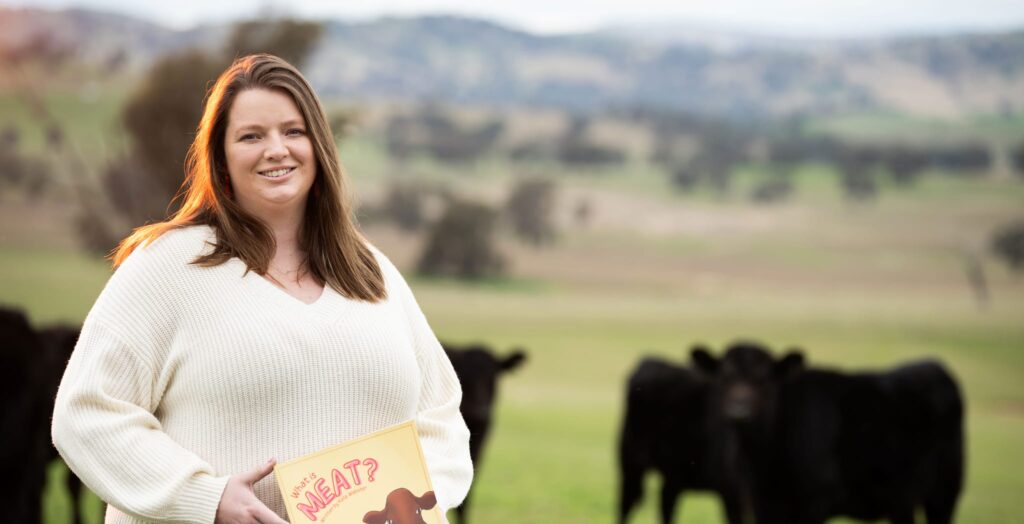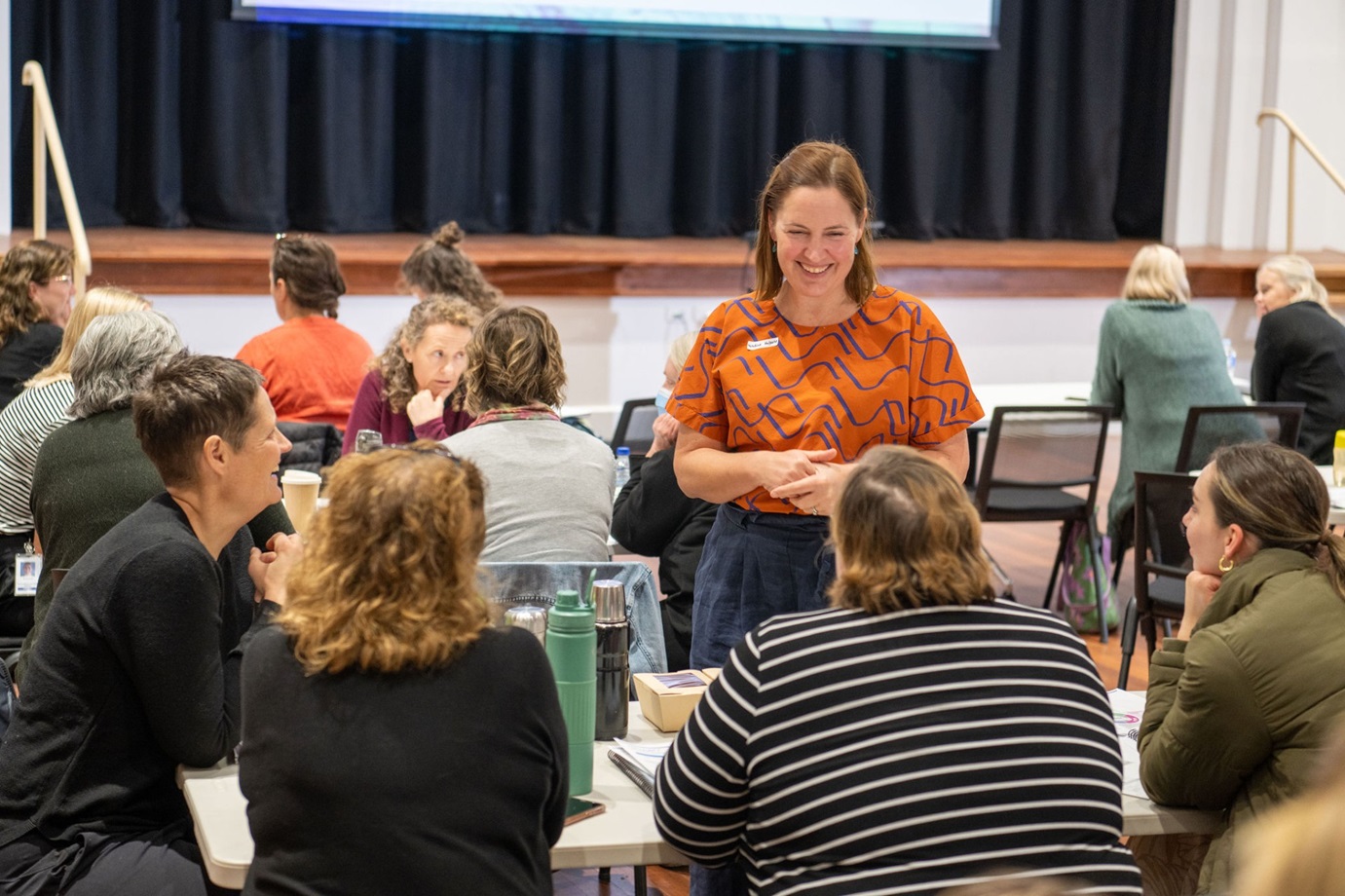


One such woman is Nadine Holgate (above), an occupational therapist and business owner, providing critical specialist service throughout northern Victoria and southern NSW.
Holgate has spent the last 22 years specialising in the field of brain injury rehabilitation, and she works with people to increase their participation in life skills, meaningful activities, and life roles after their injury, while providing support and strategies for their families.
“Rural women just have so much to offer– economically and through their community leadership and in business,” Holgate says, noting that this often requires “a lot of multitasking”, which is made harder out in rural and regional communities “where resources are a little bit more scarce”.
“We all try our best in country areas, but we’re thinly spread on the ground. Definitely, you know, there’s a lot of room for recruitment in rural areas.”
The area that Holgate works in is a specialised area of brain injury rehabilitation, and she says these kinds of specialists are often hard to come by in rural regions.
“I wanted to work in this setting– in this rural region– [because] there was sort of no specialty practice, no specialty services at any local hospitals,” says Nadine, whose business, Neurolinks, offers rehabilitation (Occupational Therapy) for those living in rural and regional Victoria following a severe brain injury.
She provides online training and webinars for Occupational Therapists all around Australia in brain injury rehabilitation.
“So many people I’ve met in rural regions were often thinking this [brain injury] was it for them, in terms of, you know, two or three years down the track, they weren’t going to recover anymore,” she says.
“And it was actually, yeah, a little heartbreaking at times, [that they didn’t realise] there’s more recovery that can happen, there’s more rehabilitation that can happen, and we can achieve more outcomes.”
A recipient of the AgriFutures Rural Women’s Acceleration Grant in 2023, Holgate says winning this award helped her to push her business in directions she hadn’t realised were possible.
“It was the first time I’d kind of put myself in for something like that and tried to apply for a grant,” she says.
“I had all these ideas, but since I was working in a small business, I didn’t have the funds to explore them or to know where to start to achieve them. So, the grant was just such a great springboard for me.”
Within the same cohort of 2023 Acceleration Grant recipients, Kate Webster (below) is continuing to drive impactful change in rural communities as well. Through the support provided by AgriFutures, Webster says her small business vision is moving forwards “in full swing” as she’s able to foster her idea into “a more practical reality”.
Webster is establishing a full ‘grab-and-go’ educational package for children across Australia to better understand where their food comes from, particularly in urban areas. These resources include e-learning courses, handouts and interactions with farmers working within these different agricultural sectors.

While she’s always been passionate about agriculture and working with children, it was in her second year of university where the idea first sparked.
“I stumbled across some honestly terrifying statistics surrounding what little knowledge children raised in urban settings have about where their food and fibre resources come from,” says Webster.
“From then the issue was always in the back of my mind.”
Two years later, in 2021, Webster decided to self-publish her first children’s book, “What is Meat?”.
“Moving forward my plan is to publish three more books, hopefully in the not so distant future, they will cover the topics of egg, milk and wool production,” she says, adding that the plan is to continue working on school resources as well.
“I have a pool of teachers nationwide who are interested in trialling my school resources (both workbooks and eLearning programs) in the classroom.”
“Additionally, I hope to start a monthly blog where I can discuss different agricultural topics and issues in a child-friendly manner that can also be integrated into the classroom in a fun and interactive way.”
Even beyond this, Webster says she has ideas surrounding a plant-based series. And it’s thanks to the Acceleration Grant that she feels prepared to carry out these visions in an achievable manner.
“Anyone who has started a small business based on a vision understands how difficult it can be to fund your own professional development and learn the skills needed to be able to achieve what it is that you are setting out to do,” Webster says.
“This grant did exactly that for me, it allowed my goals and hopes to become a reality.”
For any other rural women with vision who might be feeling under-equipped to get it off the ground, Webster says “this grant is an incredible opportunity”.
“[It] will open numerous doors to you and your vision, broaden your networks and give you the confidence boost to hit the ground running.”
Applications for the 2025 AgriFutures Rural Women’s Acceleration Grant are now open, and close Wednesday, 9 October 2024.
Find out more about eligibility, applications and grants
This article was written by Brianna Boecker and originally published by Women’s Agenda.
 NATIONAL CHALLENGES AND OPPORTUNITIES / 30.08.24
NATIONAL CHALLENGES AND OPPORTUNITIES / 30.08.24  WORKFORCE AND LEADERSHIP / 30.08.24
WORKFORCE AND LEADERSHIP / 30.08.24  WORKFORCE AND LEADERSHIP / 30.08.24
WORKFORCE AND LEADERSHIP / 30.08.24  WORKFORCE AND LEADERSHIP / 30.08.24
WORKFORCE AND LEADERSHIP / 30.08.24